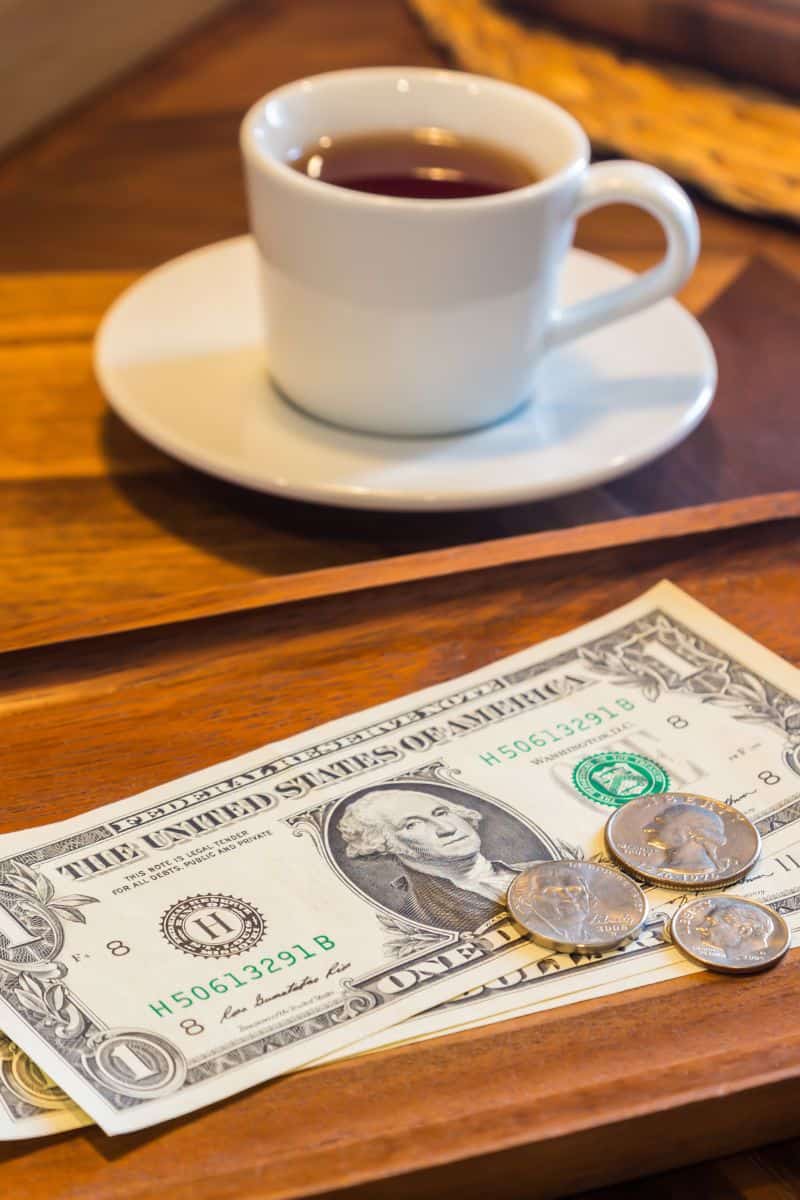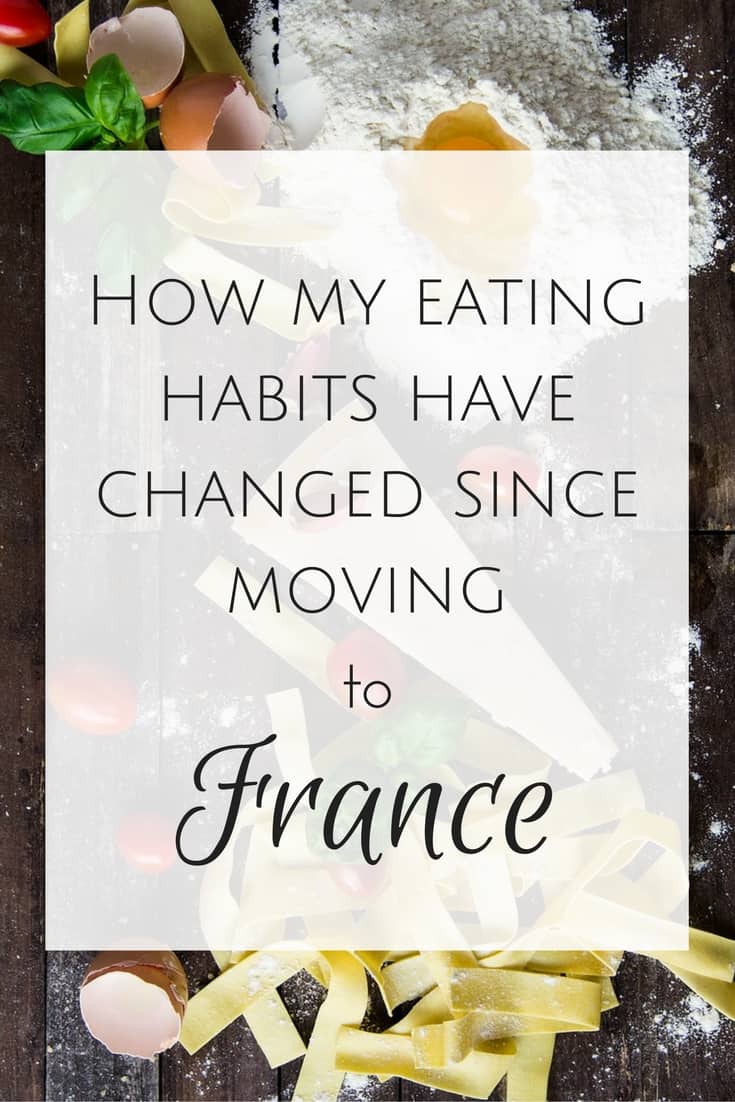French culture is known for its elegance, delicious food, and rich history. However, some of the customs and habits that are commonplace in France may come across as rude or off-putting to Americans. These cultural differences can cause misunderstandings and even lead to conflict between the two groups. Let’s talk about French habits that might be considered rude in the United States.
I recently wrote an article about eight American habits that would be considered rude in France, and in the name of balance and all, I’m writing the reverse post.
First, cultural habits are not inherently good or bad. The French aren’t doing things “right” or “wrong,” nor are Americans. When we look at these cultural norms through the lens of our own culture and life experiences, we perceive them to be rude, polite, or good or bad. But they’re just differences and I think it’s important to not place judgment on them. We can learn, adapt, and try to be a good guest when we’re in another country and go from there.
I also think it’s important to point out that no one tries to be rude. I mean, sure, we all can have a bad day, but French people doing the things below aren’t deliberate efforts to be disrespectful or offend Americans. They’re acting appropriately in their culture, but cultural norms don’t always translate. For more on that topic, check out these American social norms to avoid in France.
It goes without saying that not every French person does these “French things” below and not every American will find them rude.
One of the biggest challenges when it comes to understanding a particular group’s habits and norms is defining what is considered rude. In France, certain behaviors that Americans might consider polite, such as smiling at strangers or making small talk with someone in line, are not necessarily expected or appreciated.
On the other hand, the French might find it rude if someone doesn’t greet them properly or fails to say “bonjour” before starting a conversation. What is considered rude or polite can vary depending on the cultural context. While Americans tend to value individualism and direct communication, the French often prioritize social harmony and indirect communication.
Always remember that cultural differences exist and what may be considered rude in one culture may be perfectly acceptable in another. By understanding the historical and cultural context of French behavior, Americans can gain a better appreciation for French customs and avoid misunderstandings.
Here’s an example. The French tend to speak more softly and use less eye contact than Americans, which can be interpreted as aloof or disinterested. Additionally, the French often take longer to warm up to strangers and may not engage in the same level of chitchat that Americans are used to.
However, from a French perspective, some American habits might seem equally rude or inappropriate. For example, the American tendency to speak loudly in public. It can be seen as disrespectful or even aggressive. Similarly, the American emphasis on efficiency and productivity can sometimes come across as impersonal, insensitive, and money hungry to the French.
Anyway, what it comes down to is understanding and respecting cultural differences. I think education on cultural norms goes a long way and affects how we’re perceived. If we can do our part by learning what we can before traveling and being aware of our own biases and habits, it’s only going to be a good thing. Educating ourselves about cultural norms will help us to have better interactions with the people we meet along the way and avoid misunderstandings. It’s a win-win.
Now let’s get into it.
7 Normal French habits that Americans may find rude:
1. Keeping a social distance with people they don’t know.
Something I’ve discussed quite a bit is how the French separate social interactions into a personal and public sphere. Keeping their distance socially (figuratively speaking, not literally) with people they don’t know means that the French are respecting the other person’s personal sphere. Strangers won’t be overly friendly or personable with people they don’t know, as a way to not intrude. In professional contexts, people like cashiers, pharmacists, and other employees won’t make small talk at the cash register or ask you where you bought your shoes or what your plans are for the day as a way to make conversation.
On the receiving end, this can feel cold and unfriendly to Americans, as if the French person is uninterested. We’re used to a more casual and friendly style of communication. I thought it was rude and standoffish until I was able to grasp the nuances of how the French interact socially. They’re polite but reserved and it’s done out of respect.
2. Casually debating at dinner.
What French people might consider friendly debate or lively dinner conversation might come across as majorly rude in the U.S. French people are happy to bring up heated topics like politics at a dinner party and debate their point with people around the table. Friends argue with each other, maybe even throw a few colorful jabs, raise their voices and that sort of thing. Then, by dessert, everyone has moved on and it’s all in good fun.
It’s the French way and a bit of a national sport. Remember, debating is not fighting and it’s not personal. French people don’t get upset or have any hard feelings because it’s normal to discuss things in this manner and get a little fired up in the moment. But then it’s over and done with and everyone’s laughing again.
In the U.S., well, tread with caution if you try this and be ready for some hurt feelings and people who take it personally. Many dinner conversations I’ve had in France would never fly in the U.S. or be considered polite ways to interact. Americans might take serious offense. Additionally, French people may interrupt each other during conversations, which can be seen as disrespectful or impolite in American culture.
3. Directness
Another habit that can be seen as rude by Americans is the French tendency to speak their mind bluntly and without filters. In France, directness is valued and seen as a sign of honesty and authenticity. However, Americans may interpret this as rudeness or insensitivity, as we tend to value others’ feelings and diplomacy in communication.
The French can be quite direct when delivering feedback in a professional context at work too or even within your friend group and family. Critical comments can be a bit off-putting if you’re used to a more indirect or softer style of communication. In the U.S., we tend to soften any criticism we have and deliver it as tactfully as possible, so as to not upset or offend the person on the receiving end.
I remember my boss at a job I had after college teaching us about sandwiching a critical piece of feedback in between two positives so it doesn’t come across too harshly. He called it a compliment sandwich.
When I taught English in French schools, I remember how strict elementary school was compared to American schools. The kids had to be model pupils and there was no room for error. I regularly saw kids at the butt of sarcastic jokes from teachers. The kids who were more advanced excelled and were rewarded and the kids who were less academically inclined weren’t taken seriously and were given what I felt was rough feedback… publicly. For instance, a teacher humiliated a kid who got the lowest test score in front of everyone. There was no compliment sandwich and feelings weren’t spared.
In general, I’d say the French are less afraid to share their criticism in all contexts and this can feel rude and hurtful if you aren’t used to it. I’ve heard French people say, “Well, I’m just being honest. It’s the truth.” Which yes, it might be, but Americans might find that to be unkind and rude… or at the very least, lack tact.
On the other hand, the French might find the more indirect, softer American way of offering feedback as wishy-washy or even confusing. Personally, no matter one’s style, I think kindness should be the priority.
4. Not tipping.
It’s not customary to tip 20% at restaurants in France. While some French people do tip, it’s not something everyone does and it’s much less than 20%. French waiters earn a salary and don’t depend on tips to live. In general, tipping in France is not as widespread as it is in the U.S.
Because of that, many French people don’t realize they need to tip 20% when they’re in the U.S. regardless of how great the meal was. They just aren’t used to doing it at home. Tipping is expected in the U.S and not leaving a tip when out to eat would be considered rude.
5. The “mm mmm” sound in conversation.
One of my favorite posts on this blog is from a decade ago and is a fun one that covers French speech noises (with audio). I call one of them the “mm mmm” sound and it caught me offguard the first couple of years I was in France. It’s a sound used in conversation that’s kind of used like “uh huh” in English when you’re talking to someone on the phone or even in person. It affirms what is being said and lets the other person know you’re listening to what they’re saying.
But unlike “uh huh” in English, the French “mmm mmm” always seems a bit rushed like it’s an interruption and comes across abruptly. It’s also pretty frequently used (maybe more times than “uh huh” would be), so much so that I thought people were always rushing me to stop talking. That’s how the same noise in English would come across. I realized that wasn’t the case and it’s a normal French sound that lets you know the person you’re talking to is listening. It’s a cultural difference for sure.
6. Negative slant to speech.
If you speak French, then you know what I’m talking about here. For example, when you want to say something is pretty good, you’d say it is pas mal, literally not bad…. which means you like it. How’s that cake taste that took your mother all day to make? Pas mal. Is that guy good looking? Well he’s pas moche, not ugly.
This stands in sharp contrast to what you’ll hear in the U.S. Everything is amazing, great, or the best ever. Our language tends to lean in a more exuberant, positive direction. In France, hearing more “glass half empty” kind of phrasing can be quite a change! Even if you didn’t like the cake that your mom put a lot of effort into, most Americans would probably say it was great or pretty good even if they didn’t love it because that’s the polite thing to say. Replying with a “not bad” even if it was good would definitely be rude in English! But not in French.
Personal note: My in-laws always smile when I tell them how wonderful and delicious their food is… and I’m not lying!
My favorite mealtime habit in France >>
7. Not picking up after your dog.
Let me preface this by saying that the French love their pets just like Americans (vet care is fantastic!) and plenty of French people pick up their dog’s poop. They sell waste bags in France and some parks even have dispensers that give them out for free. Overall, in the time I’ve lived in France, streets and parks have gotten a lot cleaner, so there’s progress being made on that front, which is most certainly a good thing.
But — yes there’s a but — the French stereotype of there being a lot of dog poop on the streets comes from somewhere. There are still loads of French people who don’t pick up after their dogs, especially if the dog does his business in the grass. Every time I go out for a walk, I see poop that wasn’t picked up.
While yes, some Americans are just as careless, it seems that picking up your dog’s poop in the U.S. is the default and expected thing to do. People shame others for not doing it. I haven’t seen that in France. Americans find it majorly rude to leave your dog’s poop on the sidewalk or grass… just waiting to be stepped in. YUCK!
***
Hope you enjoyed this one! What other things do French people do that Americans might find rude?
Be sure to read the reverse post full of interesting American habits the French find rude.
If you’re traveling to France soon and want my insider tips to help you have a great trip , grab my France travel guide priced at just a few bucks!
PIN IT:












People don’t smile at strangers. They won’t make eye contact, even off of the Metro. They won’t say Hi if you pass them in the street. They act put-upon if you say Hi to strangers, probably because they must choose whether to answer. It’s just not comfortable for them.
I know it’s a French thing. I never know what to do, because sometimes out of the blue they will acknowledge you! In our little SW France village, I passed a man and his dog once or twice a day while walking my dog. It got to the point that I changed my route so as not to cause an awkward moment. But we continued to run into each other.
It took two years for him to engage with me. I do believe that was brought about because his dog was so happy to see my dog! The other day he laughed at something and patted my arm. I felt like I had achieved some new social level!
On the other hand, our 90-year-old neighbor welcomed us with open arms from day one. His adult daughter took a couple of years. The people in the small village Spar we’ve shopped in at least twice a week for 7 years barely acknowledge our existence 🙂 The lady and her daughter in the Petit Casino are all smiles and pleasant chats. Le sigh. Who knows what to do.
Nice job Diane. I remember taking the train from Gare Saint Lazare to Caen on our way to Honfleur. A young French man heard me speak English with my companion. After a few minutes he asked me in English with a French accent, “ why do you come to france? For the food, wine, museums?” I simply answered, “no for the people.” He smiled, shook my hand and smiled. I wasn’t offended but was happy that I recognized his French test and that my response was spot on.
It has only encouraged me to explore france more and to learn the language and cultural subtleties.
Re the dog poop. From when I lived in France (nearly 50 ago) the sidewalks were very dirty. It’s not my dog, even though he is attached to my leash.
I don’t know about Americans not being directed and blunt. It is usually American parents and bosses who are always blunt and direct while the kids and workers are not allowed to speak their minds and be honest without fear of being punished for it. Bosses in America use directness as a means of fear and intimidation to shut their workers down. They believe that workers are like kids – be seen but not heard. Too many Americans just don’t like it when people from other countries are direct and honest with them. Americans feel that they are the only ones who are allowed to be direct even if it means that they deliberately hurt the other person’s feelings..
Dr. Harriet Fraad describes in her YouTube videos about how parents, religious authorities, and school authorities are always knocking down the kids in order to obey without question and not to question things. You wonder with all this suppression of individual thought, how did the USA ever manage to invent so many things and manage to send a person to the moon and back?
It just goes to show you that there are always things to adapt to even if there is an assumption about what we think we may know. Living somewhere really does expose you to new things—fascinating post!
So glad you enjoyed it, Molly, thank you!
Time and agenda! My ex, chronically late, learned the hard way that meetings in the US start on time and ends when supposed to end. The French take it easier if the topic needs to go in overtime
Same with the agenda: informal communication outside meetings leave Americans with the impression that French aren’t precise, don’t follow the agenda etc. Starting any work conversation without showing any interest to the counterpart is considered rude.
hello there,
i am French born citizen and i have lived in France, Australia and Canada, worked also in England.
to me, people are people and i have met people very friendly, open to greet you from day one, i have also met people who are not interested in talking to a stranger.
the French people are not unpolite to strangers, they are reserved, but my brother and i will talk to anyone.
here, in Canada, with so many new comers from all parts of the world, when i hear a foreign accent, i make a point of asking where they come from. and when they answer, i always tell them two things 1) i am glad that they are here, 2) i am your neighbour, i am from France. we may never see each other again, but i made them feel welcome.
i think the key to good relationship is not to say you are from such or such country, but to say “you are a person like me and we can get along”.
thank you Diane for the good report.
merry Christmas.
Jean.
So true, Jean, thank you. Making someone feel welcome goes a long way. There are so many universal aspects of being a human no matter what one’s nationality is. Merry Christmas as well!